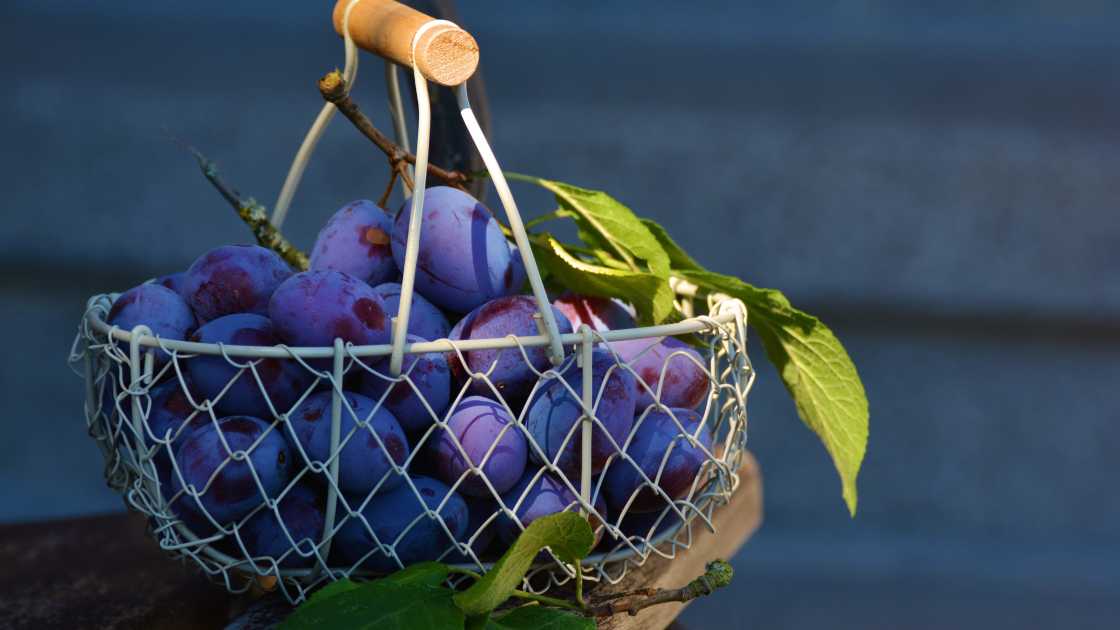Almost anyone who has been diagnosed with diabetes has wondered whether they can eat one food or the other. One set of fruits noted for their plenty of health benefits are plums. It is therefore not uncommon for diabetics to be asking whether plums are good for them or not.
Plums are healthy fruits and provide you with a lot of health benefits. But to determine whether a diabetic can take it or how much of it a diabetic can take, we have to take a look at certain important factors.
Some of the important factors that we have to consider before drawing a conclusion as to whether diabetics should eat plums or not include:
- The type of sugars present in plums (complex or simple sugars)
- The glycemic index of plums
- Other nutritional or medicinal components found in plums that may be good or bad for diabetics
You can check this post out to read more about the overall health benefits of plums and why you should be eating them.
What are the types of sugars present in plums
Plums have been found to contain both simple and complex types of sugars. Some of the simple types of sugars contained in plums include glucose, fructose, sucrose. The complex sugars present in plums are fiber and sorbitol.
Plums are known to have relatively high levels of the complex sugars sorbitol and fiber.
They, therefore, serve as a good source of energy which is required by everybody including diabetics but do not mediate a rapid rise of blood sugar level which is very good for diabetics [1].
Does the types of sugars in plums contribute to increase in blood sugar
The biggest problem that diabetics have is the persistent sharp increase in their blood sugar and hence any fruit or food that will lead to a sharp increase in their blood sugar level is one that needs to be critically looked at before giving it to them.
Plums contain complex carbohydrates which are very good for diabetics or people living with diabetes because the body takes a longer time to break them down.
Once it takes a long time to break down, there will be no sharp increase in blood sugar, hence the small amount of insulin or the antidiabetic drug taken will be able to adequately control the blood sugar in their presence.
As such, fruits like plums that contain high amounts of complex carbohydrates are recommended for diabetics over their other counterparts having less complex carbohydrates but more simple sugars.
What is the glycemic index of plums
The glycemic index of plums has been estimated to be about 40. As such when compared to the gold standard being glucose (glycemic index = 100), it can be said that plums have a relatively low glycemic index.
Carbohydrate-containing foods can be classified as high glycemic index foods when G.I.≥70, moderate glycemic index food when G.I. is between 56-69, or low glycemic index food when G.I. ≤ 55, relative to that of pure glucose (GI=100) [2].
The consumption of a low glycemic index fruit like plums is associated with better weight control and reduced risk of incidence of chronic diseases, like diabetes.
What is the glycemic load of plums
Glycemic load (GL) unlike glycemic index gives us an overview of the quality and quantity of carbohydrates obtained from one serving of a food portion.
For a typical serving of a food, GL would be considered high with GL≥20, intermediate with GL of 11-19, and low with GL≤10 [3]
Plums have been found to have a GL of about 2 which is a very low glycemic load. This means one serving of plums will only release a small percentage of the overall carbohydrate content estimated to be available.
As such, plums do not increase the blood sugar level much.
With plums having a combination of low glycemic index and low glycemic load values, it becomes difficult for plums to cause an extreme increase in the postprandial blood glucose levels even in a diabetic.
Do plums raise blood sugar
From the above discussion, you realize that plums contain high amounts of carbohydrates including both simple and complex sugars. As such, they have the tendency to increase blood sugar levels.
The good thing is that they don’t significantly increase the sugar level when taken in moderation and will also not lead to a sharp increase in blood sugar levels (a dreaded act for diabetics).
Are there other nutritional components of plums that make them good for diabetics?
Yes, plums contain a number of other nutritional components that have several health benefits or medicinal benefits for diabetics.
Some species of plums have been considered antidiabetics and their extracts are known to have potent antidiabetic activities [4].
The seeds have also been found to contain alkaloid, jambosine, and glycoside jambolin or antimellin which halts the diastatic conversion of starch into sugar. This effect will therefore play a key role in controlling blood glucose levels in diabetics, especially postprandial blood sugar levels.
Also, plums contain high levels of fiber. Some studies have found that high levels of fiber such as present in plums can lead to an improvement in insulin sensitivity which will be of great help to diabetics [5].
Also, it also plays a crucial role in weight management, reduces inflammation, regulates bad cholesterol, and promotes good heart function.
All these effects help decrease the occurrence of metabolic diseases and reduce the incidence of metabolic complications associated with diabetes. Complications from diabetes are the greatest battle that every diabetic fights.
Therefore, if plums can help in reducing the incidence of such complications then it means plums are good fruits for diabetics to eat.
How many plums can a diabetic eat in a day
To determine the number of plums you can take in a day, you have to consider the total carbohydrate you require in a day.
Diets for diabetics are usually pre-determined based on their caloric requirements and insulin intake. The most important thing is for diabetics to take a constant amount of carbohydrates in a day.
So whether you take one or two or three plums in a day, you will include the essential amount of carbohydrates you are getting from them into your dietary plan.
Talk to your doctor or dietician to estimate or give you a plan on what to eat and make sure they add the number of plums you are willing to take in a day into your dietary plan.
WRITTEN AND EDITED RESPECTIVELY BY:
Dr. Ehoneah Obed is a registered pharmacist and a member of the Pharmaceutical Society of Ghana. He has a Doctor of Pharmacy degree from Kwame Nkrumah University of Science and Technology and has experience working in a Tertiary hospital as well as various community pharmacies. He is also a software engineer interested in healthcare technologies.
His love for helping others motivates him to create content on an array of topics mostly relating to the health of people and also software engineering content.
He is knowledgeable in digital marketing, content marketing, and a host of other skills that make him versatile enough to uplift any team he joins.







1 Comment